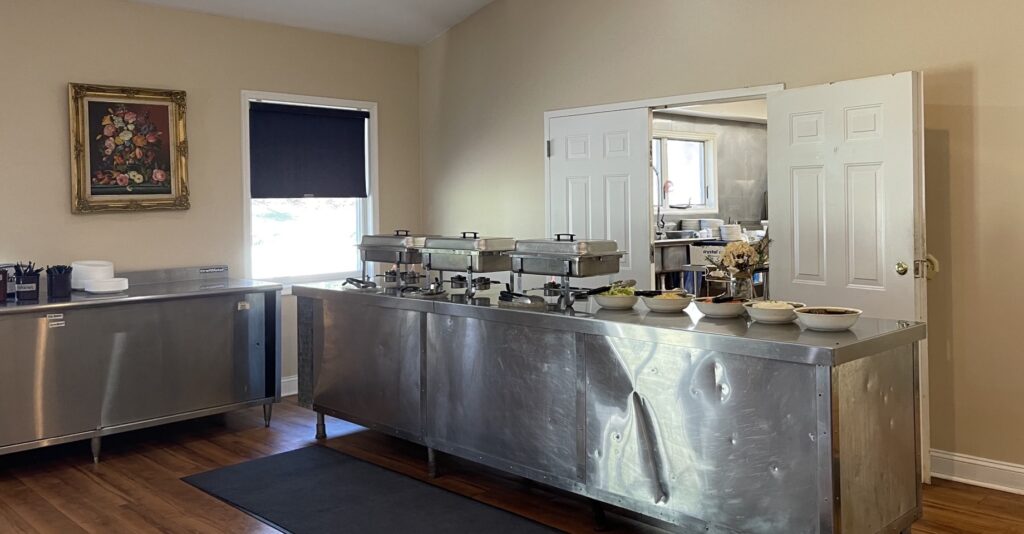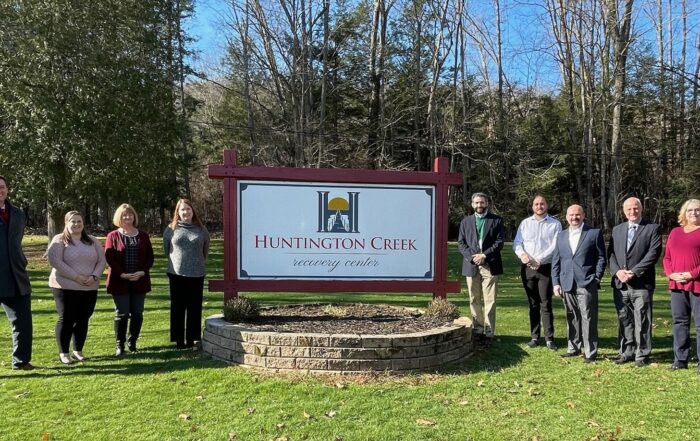Reinvestment Committee

Since the inception of HealthChoices, the program has been able to meet and exceed the goals of improving access and quality while controlling costs. Through expert management of the HealthChoices contracts across Pennsylvania, excess funds have led to reinvestment statewide. These funds have been used to expand services for HealthChoices recipients, and many new and innovative services have been developed through the reinvestment process.
The North Central contract has recognized cost efficiencies in several contract years which have resulted in over $13 million in reinvestment funds. The BHARP Board works collaboratively with Community Care to identify priorities. Each of the five BHARP sub regions participates in meetings aimed at identifying county needs and determining ways to plan sub regionally for reinvestment projects.
As part of the sub regional planning, BHARP considers the following items:
- Are there regulatory requirements that are unmet in the 24 counties?
- Are there unfunded mandates for MH or D&A?
- What are the service needs in each individual county?
- What are the commonalities across the 24 counties?
BHARP utilizes this information to help determine the final priority list that is shared with Community Care and OMHSAS. (See Attachment #A for the HealthChoices Contract Priorities List). To date, BHARP has plans that cover the following areas:
- Supportive Housing: The supportive housing plan includes development of fair-weather lodges, transitional living programs, Master leasing and bridge subsidy programs, and the addition of local housing coordinators. Through the supportive housing reinvestment plans, funds were also set aside for a contingency fund to cover costs related to obtaining or maintaining housing, sub-regional rental assistance programs, and capital projects involving renovation and development of apartments. The supportive housing plans have received reinvestment funding from multiple contract years.
- Psychiatric Rehababilitation: In 2010, the Department of Human Services (DHS) submitted an addendum to CMS to add Psych Rehab services to the state Medicaid plan. In anticipation of approval of that addendum and keeping with the goal of increasing access to recovery-oriented services, BHARP dedicated funds to the development of psych rehab services. Reinvestment funded the addition of seven mobile psych rehab programs, four site-based programs and two club house programs. The result of the expansion should assure all that BHARP counties meet the HealthChoices access standards for psych rehab.
- High Fidelity Wrap Around Services: This priority was identified by Northumberland County. Reinvestment funds are used, in addition to other grant funding, to support the implementation of High-Fidelity Wrap Around Services.
- Crisis Intervention Services: When talking about priorities and unmet needs, it was determined that enhancement of crisis intervention services would benefit several of the BHARP counties. The crisis intervention reinvestment plan set aside funds to develop phone, mobile and walk-in crisis services in four counties and enhance services in five additional counties.
- Warm Line Services: As access to consumer run warmline services was inconsistent, the reinvestment plan allowed BHARP to add or enhance services so individuals would have access to this service. This plan also included funding for the startup of a mental health association for four counties.
- Drug and Alcohol Case Management: This plan included enhancement of D&A Case Management services which included mobile engagement services and Buprenorphine coordination. It also included funds for training initiatives for Certified Recovery Specialist and a Co-Occurring Learning Collaborative. In Fiscal Year 2010/2011 DDAP shifted its focus from Targeted Case Management to Case Coordination. To support the DDAP initiative, the BHARP transitioned the D&A Targeted Case Management plan to the D&A Case Coordination plan and added funding to assure all counties could implement the new service.
- Forensic Targeted Case Management: The Forensic Targeted Case Management plan allowed for expansion of these services. Additional funds in this plan will be used for training initiatives.
- Certified Peer Specialist Services (CPS): The CPS plan included funding for a recovery conference, learning collaborative, and start-up of forensic peer services for one county. The recovery conference included funding for small local projects aimed at making connections with spiritual communities. The learning collaborative provided initial certification training, specialized peer training and regional continuing education training for CPS.
- Telepsychiatry: This plan allowed for expansion of telepsychiatry into several counties. Utilization of telepsychiatry has allowed increased access to needed psychiatric services and psychiatric specialty services for children and adolescents.
- Integrated Health and Wellness Teams: This plan provided funding to add nursing services to outpatient and psychiatric rehabilitation to create a Behavioral Health Home Model. Several providers were allocated funds to implement nursing services and provide training on wellness coaching to other direct care staff. The nurse assists individuals with high physical health needs and provides support and assistance to other staff. These projects also led to BHARP participating in a grant from the Patient Centered Outcome Research Institute (PCORI) with Community Care and UPMC Center for High Value Healthcare. Over the three-year course of the grant, researchers will look at the effectiveness of a provider supported Health Home Model versus a patient driven Health Home Model.
- Certified Recovery Specialist: The Certified Recovery Specialist (CRS) plan included funding for startup of CRS services as well as initial training and certification for CRS and a Learning Collaborative. CRS services were implemented in 23 counties utilizing funds from the plan.
- Community Based Employment: This reinvestment plan provided startup funding for a program serving Bradford/Sullivan Counties. The program consisted of a store front for used furniture sales. All of the furniture was purchased and restored by individuals working in the program. Individuals eligible for employment are adults with a mental health and/or co-occurring drug and alcohol issue. The goal of the program is to allow individuals the opportunity to re-enter or enter the workforce with some experience and employment references. The other funds in this plan were used to purchase new equipment for a program in Tioga County (Highland Chocolates) which employs individuals with a mental health and/or developmental disability.
- Mental Health Outpatient: The Mental Health Outpatient plan included funding for startup of services in an underserved region of Centre County, Early Childhood Mental Health Evaluations for preschools in Centre County, Dialectal Behavioral Therapy (DBT) training, and Parent Child Interactive Training (PCIT) agencies. The training included some face-to-face training as well as an online training curriculum. The PCIT initiative was developed through the BHARP Children’s workgroup and a RFQ was done for the six agency slots.
- Adolescent Community Based Drug and Alcohol Services: This plan was developed with the Single County Authority (SCA) for Centre County. The goal of the program is to provide intensive in-home and community-based services for children/adolescents with a primary D&A diagnosis and their families. The service utilizes a team-based approach and is all inclusive. A Supplemental Service Description was developed and submitted with the plan.
- Recovery Center: The Recovery Center Plan was written with Forest and Warren Counties to provide funding for renovations to a property that houses Beacon Light Recovery Center, as well as for a nurse to manage the Behavioral Health Home model. The provider is also participating in the PCORI grant initiative.
- Drug and Alcohol Partial Hospital Program (PHP): The D&A PHP was written with the Clarion County SCA Office. This plan opened access to D&A PHP for Clarion and surrounding counties.
- Drug and Alcohol Outreach: The D&A outreach plan included funding for the Screening, Brief, Intervention, and Referral to Treatment (SBIRT) training. Due to financial status of the contracting Fiscal Year 2012/2013, reinvestment funds were returned to Community Care. The Administrative office will be working with several counties to continue this initiative utilizing administrative funds.
- Drug and Alcohol Family Education: This plan was written with the Clarion County SCA office. The goal of the program is to provide outreach and education to family members aimed at helping the families support their loved one in his/her recovery.
- Dual Diagnosis Treatment Teams (DDTT): The DDTT Plan allocated funding for start-up for two community-based teams that provide all inclusive, intensive services to adults with a behavioral health diagnosis and intellectual disability. The BHARP DDTT workgroup developed the service description for this program after several months of discussion and review of existing programs.
- Drug and Alcohol Recovery Housing: This plan allowed counties to work with vendors to develop recovery houses or establish contingency funds to support individuals in obtaining housing. Some counties worked with Oxford House International to establish houses based upon their model. Other counties utilized local providers or established contingency funds to support individuals with a D&A diagnosis.
- Evidenced Based Training: The Evidenced Based Training plan allowed BHARP to provide training and transformation of mental health and drug and alcohol outpatient clinics. Each county identified a mental health and a drug and alcohol provider to participate in the training and a 16 month Learning Collaborative. At the end of the collaborative, providers will have the opportunity to be deemed a trauma center.
The plans written for these service areas cover the 23-county region BHARP contract. Plans written after January 1, 2022 which contain all inclusive language will include the 24th county.
Reinvestment Monitoring
As primary contractor, BHARP is responsible for reinvestment monitoring and has a Reinvestment Monitoring Committee that is attended by BHARP staff, county members, Community Care and OMHSAS. The committee meets monthly and is responsible for reviewing the progress of all aspects of reinvestment.
For reinvestment planning, the committee gathers all the information necessary for development of the written plans that are submitted to OMHSAS, utilizing the reinvestment plan template.
Feedback from OMHSAS is disseminated through the committee back to the BHARP staff. Once all the details are worked out, the plans go through the Supplement Service Description (SSRC) process for approval.
(A copy of the recent reinvestment monitoring report is found within the monitoring meeting packet which is available on the BARP website under County Login – Meeting Packets and Minutes: www.bharp.org)
The SUD Program Advisory Committee guides BHARP’s Executive Committee in matters pertaining to substance use disorder. It works collaboratively, proactively, and creatively with system partners to improve behavioral health through deepening our understanding of substance use disorder and investigating innovative approaches to reduce its consequences for members, and their families.
The advisory committee has successfully completed many projects including:
- Development of a Case Coordination service description and implementation of the service
- Development of Certified Recovery Specialist service description and the implementation of the service
- Expanding the definition of Warm Hand Off and updating the Case Coordination/Certified Recovery Specialist Service Descriptions to include the Warm Hand Off language
- Drug and Alcohol Community Based Adolescent Program through reinvestment
- Expansion of non-hospital residential beds (3.1/3.5/3.7/3.7WM) through reinvestment
The SUD Program Advisory Committee is comprised of the Single County Authorities (SCAs) from the 24 North Central counties, along with system partners from the Department of Drug and Alcohol Programs, Office of Mental Health and Substance Abuse Services, and Community Care Behavioral Health. BHARP facilitates the advisory committee that meets quarterly.
Program Advisory Committees
Substance Use Disorder (SUD) Program Advisory Committee
Children’s Program Advisory Committee
Related News
Huntington Creek Recovery Center Celebrates Expansion
Shickshinny, PA – The Huntington Creek Recovery Center (HCRC) recently celebrated its expansion into a new area of adolescent residential treatment services. On November 22, 2022, HCRC held a private tour of its facility for [...]
